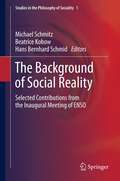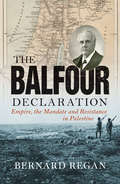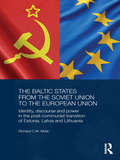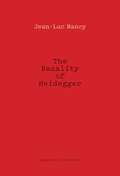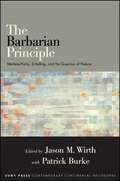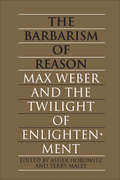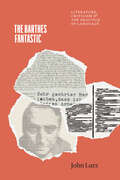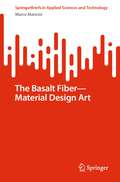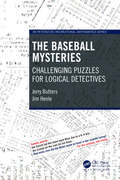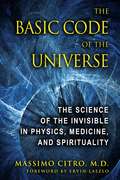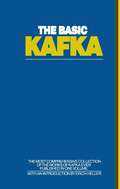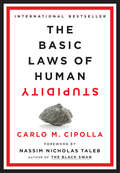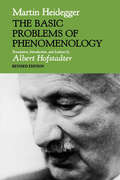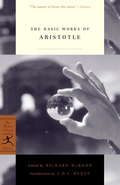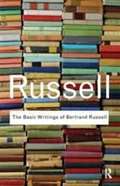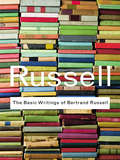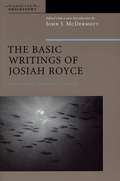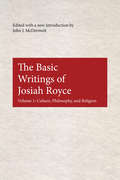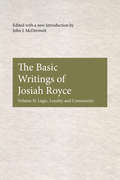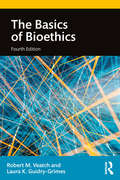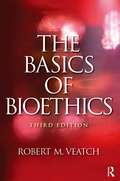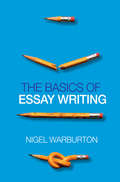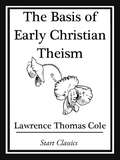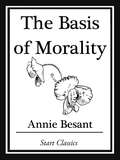- Table View
- List View
The Background of Social Reality: Selected Contributions from the Inaugural Meeting of ENSO
by Michael Schmitz Hans Bernhard Schmid Beatrice KobowThis volume aims at giving the reader an overview over the most recent theoretical and methodological findings in a new and rapidly evolving area of current theory of society: social ontology. This book brings together philosophical, sociological and psychological approaches and advances the theory towards a solution of contemporary problems of society, such as the integration of cultures, the nature of constitutive rules, and the actions of institutional actors. It focuses on the question of the background of action in society and illuminates one of the most controversial, cross-disciplinary questions of the field while providing insight into the ontological structure of groups as agents. This volume offers an interesting and important contribution to the debate as it does well in bridging the gap between the analytical and the continental tradition in social philosophy. In addition, this volume expands the reach and depth of the philosophy of sociality by relating it to philosophical ideas from the late 19th and early 20th centuries and to key thinkers such as Husserl, Heidegger, and Bourdieu. The contributors include internationally renowned scholars as well as a highly selected set of younger scholars whose work is at the cutting edge of their field. Scholarly, yet accessible, this book is an essential resource for researchers across the social sciences.
The Balfour Declaration: Empire, the Mandate and Resistance in Palestine
by Bernard ReganThe true history of the imperial deal that transformed the Middle East and sealed the fate of PalestineOn November 2, 1917, the British government, represented by Foreign Minister Arthur Balfour, declared that they were in favor of “the establishment in Palestine of a national home for the Jewish people.” This short note would be one of the most controversial documents of its time.A hundred years after its signing, Bernard Regan recasts the history of the Balfour Declaration as one of the major events in the story of the Middle East. Offering new insights into the imperial rivalries between Britain, Germany and the Ottomans, Regan exposes British policy in the region as part of a larger geopolitical game. Yet, even then, the course of events was not straightforward and Regan charts the debates within the British government and the Zionist movement itself on the future of Palestine.The book also provides a revealing account of life in Palestinian society at the time, paying particular attention to the responses of Palestinian civil society to the imperial machinations that threatened their way of life. Not just a history of states and policies, Regan manages to brilliantly present both a history of people under colonialism and an account of the colonizers themselves.
The Baltic States from the Soviet Union to the European Union: Identity, Discourse and Power in the Post-Communist Transition of Estonia, Latvia and Lithuania (BASEES/Routledge Series on Russian and East European Studies)
by Richard MoleThe Baltic States are unique in being the only member-states of the EU to have fought to regain their sovereignty from the Soviet Union, only then to cede it to Brussels in certain key areas. Similarly, no member-states have had to struggle as hard as Estonia, Latvia and Lithuania to preserve their identity after fifty years of Soviet nationality policy in the face of sub-state and supra-state challenges. The post-communist experience of the Baltic States thus allows us to examine debates about identity as a source of political power; the conditioning and constraining influence of identity discourses on social, political and economic change; and the orientation and outcome of their external relations. In particular, the book examines the impact of Russian and Soviet control of Estonia, Latvia and Lithuania; the Baltic independence movements of the late 1980s/early 1990s; the citizenship debates; relations with Russia vis-à-vis the withdrawal of the troops of the former Soviet Army; drawing of the shared boundary and the rights of Russian-speaking minorities as well as the efforts undertaken by the three Baltic States to rebuild themselves, modernise their economies, cope with the ensuing social changes and facilitate their accession to the EU and NATO.
The Banality of Heidegger
by Jean-Luc NancyHeidegger and Nazism: Ever since the philosopher’s public involvement in state politics in 1933, his name has necessarily been a part of this unsavory couple. After the publication in 2014 of the private Black Notebooks, it is now unambiguously part of another: Heidegger and anti-Semitism.What do we learn from analyzing the anti-Semitism of these private writings, together with its sources and grounds, not only for Heidegger’s thought, but for the history of the West in which this thought is embedded? Jean-Luc Nancy poses these questions with the depth and rigor we would expect from him. In doing so, he does not go lightly on Heidegger, in whom he finds a philosophical and “historial” anti-Semitism, outlining a clash of “peoples” that must at all costs arrive at “another beginning.” If Heidegger’s uncritical acceptance of prejudices and long-debunked myths about “world Jewry” shares in the “banality” evoked by Hannah Arendt, this does nothing to lessen the charge. Nancy’s purpose, however, is not simply to condemn Heidegger but rather to invite us to think something to which the thinker of being remained blind: anti-Semitism as a self-hatred haunting the history of the West—and of Christianity in its drive toward an auto-foundation that would leave behind its origins in Judaism.
The Barbarian Principle: Merleau-Ponty, Schelling, and the Question of Nature (SUNY series in Contemporary Continental Philosophy)
by Jason M. Wirth; Patrick BurkeToward the end of his life, Maurice Merleau-Ponty made a striking retrieval of F. W. J. Schelling's philosophy of nature. The Barbarian Principle explores the relationship between these two thinkers on this topic, opening up a dialogue with contemporary philosophical and ecological significance that will be of special interest to philosophers working in phenomenology and German idealism.
The Barbarism of Reason: Max Weber and the Twilight of Enlightenment
by Terry Maley Asher HorowitzThe recent renewal of interest in Max Weber evidences an attempt to enlist his thought in the service of a renewed dream of Enlightenment individualism. Yet he was the first twentieth-century thinker to fully appreciate the pervasiveness and ambiguity of rationalization which threatened to undermine the hopes of the Enlightenment. Asher Horowitz and Terry Maley present a collection of essays tracing the contemporary significance of Weber's work for the tradition of Enlightenment political thought and its critiques. In its critical inquiry into Weber's thought, The Barbarism of Reason continues the exploration of the limits and prospects of politics in a rationalizing society. The first section comprises a set of both historical and philosophical reflections on the political implications of Weber's central concepts such as disenchantment, rationality, and affectivity, the historical understanding, meaning, and domination. The second section examines the institutional and historical context that framed Weber's inquiries into structures of the modern mode of domination, as well as his understanding of the nature of the modern state. Among the topics broached are Weber's strategic intervention into the development of the liberal theory of the state as well as a critical examination of the theoretical and pre-theoretical roots of his construction of the subject. Another of the essays reveals the schizophrenic structure of modern subjectivity. The third and last section attempts to trace the vicissitudes of Weber's seminal problems concerning rationalization, power, and disenchantment through some of the most important responses to his work in the twentieth century.
The Barthes Fantastic: Literature, Criticism, and the Practice of Language (Thinking Literature)
by John LurzThis study of the writing of Roland Barthes breaks down the divide between lived experience and the language of a literary work. In The Barthes Fantastic, John Lurz explores the intersection of literature and everyday life—and confronts some habits of literary study—through a reading of the work of Roland Barthes. An influential French theorist, Barthes wrote prolifically on the place of language and the play of signs in the ways we produce cultural and aesthetic meaning. Ranging across the entire sweep of Barthes’s varied career, Lurz shows how Barthes’s insights into signification and literature involve particular intellectual activities that impart significance to the world. Doing so allows him to develop an expanded understanding of the fantastic as a conceptual category—a way of thinking—in which the texts we read come to inform the texture of our real lives. Ultimately, The Barthes Fantastic enlarges our sense of what we learn as students of literature and gives us a new picture of a writer we thought we knew.
The Basalt Fiber—Material Design Art (SpringerBriefs in Applied Sciences and Technology)
by Marco ManciniThis book presents a design research on the basalt fiber, a natural mineral material with important characteristics, and investigates the material's properties, production techniques, and most common uses, while also delving into aspects yet to be improved. The work presents a part of original research in between art and design, in which concepts, prototypes, and ideas are proposed, aimed at the enhancement of basalt fiber also from an esthetic point of view and not only from a performance one. By working on its perceived qualities and creative and formal potential, it is possible to support and extend the use of this material in many areas of design, including product, exhibit, cultural industries, and fashion. Considering that environmental regulations are increasingly stringent, the use of basalt fiber may in some cases be more advantageous than other popular technical fibers, both because of its own performance characteristics and specifically because of its inherent sustainability.
The Baseball Mysteries: Challenging Puzzles for Logical Detectives (AK Peters/CRC Recreational Mathematics Series)
by Jim Henle Jerry ButtersThe Baseball Mysteries: Challenging Puzzles for Logical Detectives is a book of baseball puzzles, logical baseball puzzles. To jump in, all you need is logic and a casual fan’s knowledge of the game. The puzzles are solved by reasoning from the rules of the game and a few facts.The logic in the puzzles is like legal reasoning. A solution must argue from evidence (the facts) and law (the rules). Unlike legal arguments, however, a solution must reach an unassailable conclusion.There are many puzzle books. But there’s nothing remotely like this book. The puzzles here, while rigorously deductive, are firmly attached to actual events, to struggles that are reported in the papers every day.The puzzles offer a unique and scintillating connection between abstract logic and gritty reality.Actually, this book offers the reader an unlimited number of puzzles. Once you’ve solved a few of the challenges here, every boxscore you see in the papers or online is a new puzzle! It can be anywhere from simple, to complex, to impossible. For anyone who enjoys logical puzzles For anyone interested in legal reasoning For anyone who loves the game of baseball
The Basic Code of the Universe: The Science of the Invisible in Physics, Medicine, and Spirituality
by Ervin Laszlo Massimo CitroExplains the universal information code connecting every person, plant, animal, and mineral and its applications in science, health care, and cosmic unity • Examines research on consciousness, quantum physics, animal and plant intelligence, emotional fields, Kirlian photography, and the effects of thoughts, emotions, and music on water • Reveals the connections between the work of Ervin Laszlo on the Akashic field, Rupert Sheldrake on morphogenetic fields, Richard Gerber on vibrational medicine, and Masaru Emoto on the memory of water DNA dictates the physical features of an organism. But what dictates how something grows--from the division of cells in a human being to the fractal patterns of a crystal? Massimo Citro reveals that behind the complex world of Nature lies a basic code, a universal information field--also known as the Akashic field, which records all that was, is, and will be--that directs not only physical development and behavior but also energetic communication and interactions among all living and non-living things. The author examines research on consciousness, quantum physics, animal and plant intelligence, the power of intention, emotional fields, Kirlian photography, and the effects of thoughts, emotions, and music on water. Linking the work of Ervin Laszlo on the Akashic field, Rupert Sheldrake on morphogenetic fields, Richard Gerber on vibrational medicine, and Masaru Emoto on the memory of water, Citro shows how the universal information field connects every person, plant, animal, and mineral--a concept long known by shamans and expounded by perennial wisdom. Putting this science of the invisible to practical use, he explains his revolutionary system of vibrational medicine, known as TFF, which uses the information field to obtain the benefits of natural substances and medications in their “pure” informational form, offering side-effect-free remedies for health and well-being.
The Basic Kafka
by Franz Kafka Erich HellerOne of the most important authors of the 20th century, Franz Kafka was a man who lived fully through his work, who attacked with stunning craft and powerful vision the bureaucratic world he hated. Now, published together for the first time, here are selections from all of Katka's writings: his longer pieces ("The Metamorphosis;' "Josephine the Singer"), his short stories, parables and his personal diaries and letters. This collection stands as the most complete picture of Kafka over shown, as one of the most influential writers-and complex men-of our time.
The Basic Laws of Human Stupidity: The International Bestseller
by Carlo M. Cipolla"A masterly book" —Nassim Nicholas Taleb, author of The Black Swan "A classic" —Simon Kuper, Financial Times An economist explains five laws that confirm our worst fears: stupid people can and do rule the worldThroughout history, a powerful force has hindered the growth of human welfare and happiness. It is more powerful than the Mafia or the military. It has global catastrophic effects and can be found anywhere from the world's most powerful boardrooms to your local bar. It is human stupidity. Carlo M. Cipolla, noted professor of economic history at the UC Berkeley, created this vitally important book in order to detect and neutralize its threat. Both hilarious and dead serious, it will leave you better equipped to confront political realities, unreasonable colleagues, or your next dinner with your in-laws. The Laws: 1. Everyone underestimates the number of stupid individuals among us. 2. The probability that a certain person is stupid is independent of any other characteristic of that person. 3. A stupid person is a person who causes losses to another person while deriving no gain and even possibly incurring losses themselves. 4. Non-stupid people always underestimate the damaging power of stupid individuals. 5. A stupid person is the most dangerous type of person.
The Basic Minimum
by Dale DorseyA common presupposition in contemporary moral and political philosophy is that individuals should be provided with some basic threshold of goods, capabilities, or well-being. But if there is such a basic minimum, how should this be understood? Dale Dorsey offers an underexplored answer: that the basic minimum should be characterized not as the achievement of a set of capabilities, or as access to some specified bundle of resources, but as the maintenance of a minimal threshold of human welfare. In addition, Dorsey argues that though political institutions should be committed to the promotion of this minimal threshold, we should reject approaches that seek to cast the basic minimum as a human right. His book will be important for all who are interested in theories of political morality.
The Basic Problems of Phenomenology
by Martin HeideggerAn “excellent translation” of an essential text by the author of Being and Time, in which he continues his pioneering work in phenomenology (Times Literary Supplement, UK).A lecture course that Martin Heidegger gave in 1927, The Basic Problems of Phenomenology continues and extends explorations begun in Being and Time. In this text, Heidegger provides the general outline of his thinking about the fundamental problems of philosophy, which he treats by means of phenomenology, and which he defines and explains as the basic problem of ontology.“For all students and scholars, Basic Problems will provide the “missing link” between Husserl and Heidegger, between phenomenology and Being and Time.” —Teaching Philosophy
The Basic Works of Aristotle (Modern Library Classics Ser.)
by Aristotle Richard MckeonPreserved by Arabic mathematicians and canonized by Christian scholars, Aristotle's works have shaped Western thought, science, and religion for nearly two thousand years. Richard McKeon's The Basic Works of Aristotle-constituted out of the definitive Oxford translation and in print as a Random House hardcover for sixty years-has long been considered the best available one-volume Aristotle. Appearing in paperback at long last, this edition includes selections from the Organon, On the Heavens, The Short Physical Treatises, Rhetoric, among others, and On the Soul, On Generation and Corruption, Physics, Metaphysics, Nicomachean Ethics, Politics, and Poetics in their entirety.From the Trade Paperback edition.
The Basic Writings of Bertrand Russell
by Bertrand RussellFew philosophers have had a more profound influence on the course of modern philosophy than Bertrand Russell. The Basic Writings of Bertrand Russell is a comprehensive anthology of Russell's most definitive essays written between 1903 and 1959. First published in 1961, this remarkable collection is a testament to a philosopher whom many consider to be one of the most influential thinkers of the twentieth century. This is an essential introduction to the brilliance of Bertrand Russell.
The Basic Writings of Bertrand Russell (Routledge Classics Ser.)
by Bertrand RussellFeaturing seminal work in the philosophies of mathematics and language, this comprehensive and assiduously edited collection also makes available his provocative and controversial views on religion and international relations.
The Basic Writings of Josiah Royce Volume II: Logic, Loyalty,and Community
by John J. Mcdermott Josiah RoyceThese two classic volumes illustrate the scope and quality of Royce's thought, providing the most comprehensive selection of his writings currently available. They offer a detailed presentation of the viable relationship Royce forged between the local experience of community and the demands of a philosophical and scientific vision of the human situation.The selections reprinted here are basic to any understanding of Royce's thought and its pressing relevance to contemporary cultural, moral, and religious issues.
The Basic Writings of Josiah Royce, Volume I: Culture, Philosophy, and Religion (American Philosophy #Vol. 17)
by John J. McDermottNow back in print, and in paperback, these two classic volumes illustrate the scope and quality of Royce’s thought, providing the most comprehensive selection of his writings currently available. They offer a detailed presentation of the viable relationship Royce forged between the local experience of community and the demands of a philosophical and scientific vision of the human situation. The selections reprinted here are basic to any understanding of Royce’s thought and its pressing relevanceto contemporary cultural, moral, and religious issues.
The Basic Writings of Josiah Royce, Volume II: Logic, Loyalty, and Community (American Philosophy)
by John J. McDermottNow back in print, and in paperback, these two classic volumes illustrate the scope and quality of Royce’s thought, providing the most comprehensive selection of his writings currently available. They offer a detailed presentation of the viable relationship Royce forged between the local experience of community and the demands of a philosophical and scientific vision of the human situation. The selections reprinted here are basic to any understanding of Royce’s thought and its pressing relevanceto contemporary cultural, moral, and religious issues.
The Basics of Bioethics
by Robert M. Veatch Laura K. Guidry-GrimesThe Basics of Bioethics, Fourth Edition offers an easy-to-follow introduction to this dynamic field, intended for healthcare professionals, teachers, students, and anyone interested in bioethics. Accessible and enjoyable for readers of all backgrounds, the book contains numerous cases—including ones that recently have dominated international headlines—to help anchor the broader discussion. The text is suitable for use in short courses in schools of medicine, nursing, and other health professions; continuing professional education; various undergraduate departments; and adult education. Chapters are organized around common moral themes in order to help readers understand the values and other connections that tie together different positions in bioethics. This fourth edition adds a new chapter on alternative frameworks in bioethics, including narrative ethics and casuistry, feminist approaches, care ethics, and virtue ethics. Due to significant advances in genetics and reproductive possibilities, this new edition devotes a full chapter to each. The combined teaching, research, and clinical experience of the two authors helps make this edition current with the evolving field of bioethics, while still embedding the major issues in a systematic framework that allows readers easily to navigate the larger field. Key Changes to the Fourth Edition:• An added chapter on new and emerging approaches in bioethics, including those based on virtue ethics, casuistry and narrative ethics, feminist ethics, and care ethics• Updates throughout the book based on developments in ethical theory and new medical research• Revisions and updates to the Learning Objectives, Key Terms, Bibliographies, and URLs• The addition of multiple recent case studies, including: Jahi McMath an undocumented patient who needs a rule bent a pediatrician who turns away unvaccinated patients a minor eligible for pediatric bariatric surgery a daughter suing a hospital for non-disclosure of her father’s Huntington’s diagnosis CRISPR-edited newborn babies
The Basics of Bioethics
by Robert M. VeatchThe third edition of The Basics of Bioethics continues to provide a balanced and systematic ethical framework to help students analyze a wide range of controversial topics in medicine, and consider ethical systems from various religious and secular traditions. The Basics of Bioethics covers the "Principalist" approach and identifies principles that are believed to make behavior morally right or wrong. It showcases alternative ethical approaches to health care decision making by presenting Hippocratic ethics as only one among many alternative ethical approaches to health care decision-making. The Basics of Bioethics offers case studies, diagrams, and other learning aids for an accessible presentation. Plus, it contains an all-encompassing ethics chart that shows the major questions in ethics and all of the major answers to these questions.
The Basics of Essay Writing
by Nigel WarburtonNigel Warburton, bestselling author and experienced lecturer, provides all the guidance and advice you need to dramatically improve your essay-writing skills. The book opens with a discussion of why it is so important to write a good essay, and proceeds through a step-by-step exploration of exactly what you should consider to improve your essays and marks.You will find help on how to:focus on answering the question askedresearch and plan your essaybuild and sustain an argumentimprove your writing style and tone.The Basics of Essay Writing is packed full of good advice and practical exercises. Students of all ages and in every subject area will find it an easy-to-use and indispensable aid to their studies.
The Basis of Early Christian Theism
by Lawrence Thomas ColeIn 1898 Lawrence Cole submitted The Basis of Early Christian Theism as partial fulfillment for the requirements for a PhD in Philosophy at Columbia University. Theism is a doctrine concerning the nature of God and his relationship to the universe. God is seen as personal and active in the organization of the Universe. Cole begins by saying, "In accounts of the theistic argument, as in the history of philosophy in general, it has been customary to pass over a space of well-nigh ten centuries of the Christian era in silence, or with such scanty and unsympathetic notice as to make silence the better alternative. Largely through the influence of such treatment as this, we moderns have almost forgotten at times that during this period there lived men inferior to none in history in endowments of mind and influence on succeeding generations, and that there then took place some of the most significant and far-reaching intellectual conflicts in the history of thought."
The Basis of Morality
by Annie BesantWritten by Annie Besant, a prominent British socialist and activist, The Basis of Morality addresses the topic of morality in five sections
